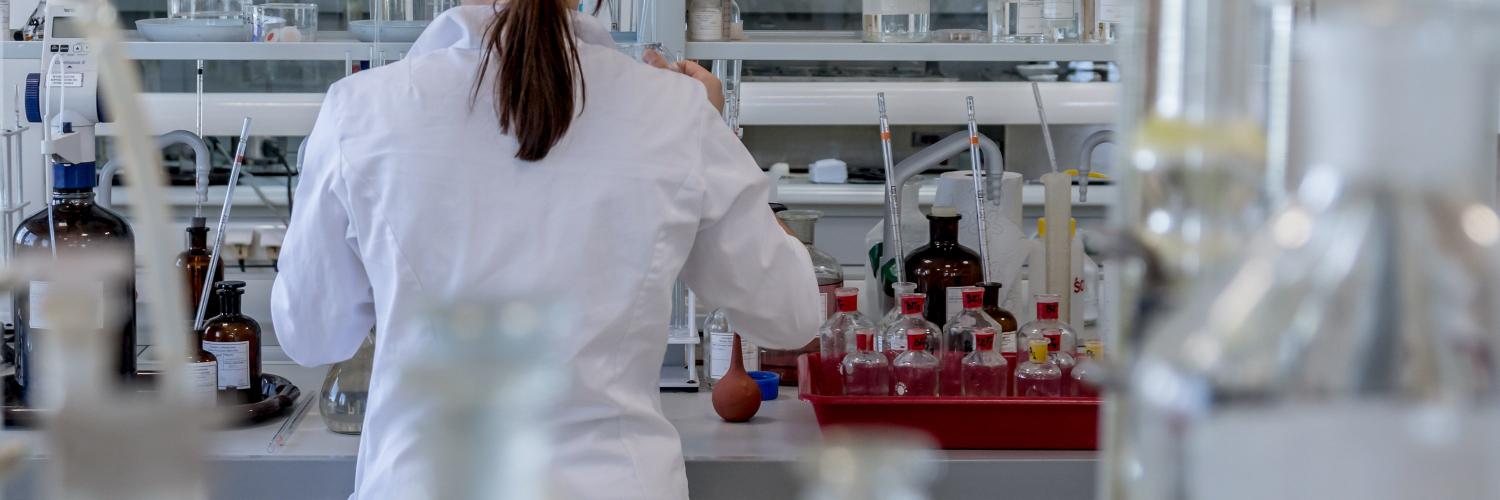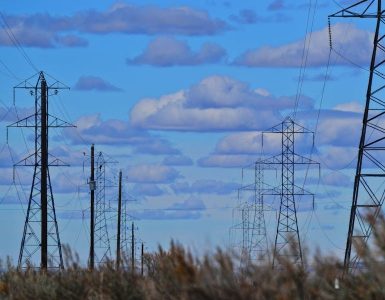When COVID-19 first surfaced in Arizona three months ago, colleges and universities immediately reacted, diving into research to find solutions and attacking community challenges as they arose.
Their efforts have become a formidable force for innovation and compassion during the pandemic.
Here’s a snapshot of some of their efforts that are helping to change the face of the pandemic in Arizona, and potentially the world.
First in the nation: Testing Arizona’s health care and first-response workforce
Last week, the University of Arizona launched an effort to test 250,000 health care workers and first responders across the state to determine who has developed antibodies to the virus.
The project, made possible with a $3.5 million grant from the state, is the first of its kind in the nation.
The tests will help determine how many people have been exposed to COVID-19 and successfully built an immunity against it. Experts say as many as 50 percent of people who have been exposed to COVID-19 have experienced few to no symptoms.
“Determining whether a significant percentage of individuals have COVID-19 antibodies is critical to returning to regular social interaction,” said Michael Dake, senior vice president for UArizona Health Sciences, who is overseeing production of the tests. “Through what we hope would eventually be a comprehensive testing program, the university and local health care facilities could begin working toward reestablishing fully operational learning and working environments.”
The tests also could be important for determining the pandemic’s reach, and for paving a pathway to develop therapeutics for patients as well as vaccines to guard against infection.
“This is critical to understanding what current immunity might be in our community and state, and it’s something no one else is doing,” Dake said. “This is a great opportunity to participate in something that will add to understanding the virus across the whole country, if not the world.
“People are literally working 24/7 to get this project up and running — pushing, pushing, pushing.”
To read more about the project, go to: UofA antibody testing.
Texting project to track 1 million households
To collect critical local data to track COVID-19 as it spreads, a team of researchers from UArizona Health Sciences and Data Science Institute launched a two-way texting system to gather and provide information to track the virus and identify areas where more resources may be needed.
The AZCOVIDTXT project allows people to easily report the health condition in their household on a weekly basis through surveys via their mobile phones. This will allow users to connect with needed resources, and provide vital information to a team of researchers at the Mel and Enid Zuckerman College of Public Health.
A promotional campaign is encouraging Arizonans to join the crowdsourcing project. The project plans to enroll 1 million or more participants.
To participate, Arizonans can simply text “JOIN” to 1-833-410-0546. Users also can sign up through the project website, azcovidtxt.org.
An AZCOVIDTXT community resource board on the integrated platform allows messaging tailored to different community segments. The platform, online or via text, also can help dispel myths and prevent scams, said Tracy Crane, assistant professor, Biobehavioral Health Sciences Division, UArizona College of Nursing, and co-director of the Behavioral Measurement and Interventions Shared Resource at the UArizona Cancer Center.
“A large number of COVID-related websites have emerged,” she said. “It’s important to have the University of Arizona provide reliable facts. In addition, cancer patients, geriatric populations, Native American communities and other groups all have varying needs. This allows an opportunity to reach a lot of people quickly and provide resources we know are evidence-based and truthful.”
Over the next six months, the researchers will work to understand the lifecycle of the novel coronavirus, identify potential treatments and create patient databases to expand understanding of the disease, among other goals.
NAU, UArizona, TGen analyze coronavirus genome
Northern Arizona University, UArizona and TGen research institute have formed the Arizona COVID-19 Genomics Union to better understand how the virus may be evolving, how it is transmitted and how it is moving through the general population.
This molecular epidemiological approach combines traditional epidemiology methods with evolutionary modeling based on a high-resolution analysis of the virus’ genome. In humans, a copy of the entire genome — more than 3 billion DNA base pairs — is contained in all cells that have a nucleus.
“Only by using genomic sequencing and advanced analyses can we begin to fully understand this disease at the molecular level, looking for keys to unlock its mysteries,” said David Engelthaler, PhD, co-director and associate professor of the TGen’s Pathogen and Microbiome Division in Flagstaff. “We have the ability to sequence the genome of every strain from every patient. That’s what we are working toward.”
The Genomics Union is similar to other groups working to gain a foothold on the new coronavirus. Rapid sharing of data and analysis will provide a better understanding of the virus to the scientific, medical and public health community. The consortium of scientists hope that their regional sequencing will give Arizona health care providers and public policymakers an edge in responding to the pandemic.
Providing housing to first responders
Grand Canyon University (GCU), whose mission includes investing in the surrounding community, is reaching out during the pandemic in a number of ways including providing housing for first responders.
GCU opened up the GCU Hotel for first responders from Phoenix Police, Phoenix Fire Department, Peoria Fire Department and potentially health-care workers. They now have a place to stay if they do not want to take that risk of infection back home to their families, school officials said.
GCU to donate all stimulus funds to impacted students
GCU recently announced it is giving 100 percent of the $22.3 million it is receiving from the federal government as part of the Coronavirus Aid, Relief and Economic Security Act directly to students in the form of emergency cash grants.
Stipulations in the act require that half of the money allocated must go to students, with the other half for universities to cover costs associated with COVID-19. But GCU President Brian Mueller said the University is committed to providing the full amount to students.
“This was an easy decision to make,” Mueller said. “It is incumbent on us to take care of our students and families who are trying to navigate the challenges caused by this coronavirus pandemic.”
Students manufacture thousands of face masks daily
Colleges also have been reaching out to their respective communities, manufacturing thousands of 3D masks every day and other protective gear for frontline workers. They also are donating laptops and school supplies to students whose families have been negatively impacted by the virus.
All 10 Maricopa Community colleges are involved in projects to help.
For example, Glendale Community College has been delivering supplies to the front door of a local hospital emergency room.
Phoenix College is donating $8,000 worth of protective gear from its Allied Health programs to local community partners. The college is redistributing personal protection equipment from its Phlebotomy and Medical Lab Technology programs to help those in the medical field.
GateWay Community College in Phoenix has loaned more than 120 laptops and nearly 100 hotspots to students to help them transition to remote learning. GateWay also donated more than $3,300 in supplies and personal protective equipment (PPE) to various healthcare partners in the Valley. It is lending ventilator and test lung equipment, valued at more than $260,000, to Dignity Health-Chandler Regional Medical Center.
Free online academic access for teachers, students, public at large
To reach out to parents, teachers, students and the public, the University of Phoenix is offering free academics, online advice, career services and more during the pandemic.
Free webinars and courses are available to anyone who needs them. From parents homeschooling for the first time, a high school needing help transitioning from classroom to job seekers wanting career advice.
One of the first things the university did was to offer support to K-12 schools needing help transitioning from classroom to online instruction during the coronavirus shutdown.
The university also opened up its continuing teacher education collection to K-12 educators.
Anyone can jump online and sign up for free courses on topics like Technology Survival for Educators, Using Apps in the Classroom, and Multimedia for Educators.
ASU Biodesign Institute expanding rapid testing to save lives
To slow the viral spread and possible recurrence of COVID-19, ASU’s Biodesign Institute received funding from the Virginia G. Piper Trust Charitable Trust to increase its capacity for automated, rapid diagnostic testing.
“ASU is in a unique position to scale up our testing efforts to support round-the-clock testing and analyze hundreds of samples daily,” said Joshua LaBaer, director of the institute, who also serves as the Piper Chair in Personalized Medicine and leader of the Biodesign Virginia G. Piper Center for Personalized Diagnostics. “We have an urgent window right now to make an impact through testing and save lives in our community.”
The Institute has shifted its research capabilities to support a clinically approved and certified COVID-19 testing center, a COVID-19 swab test kit production facility capable of assembling 2,000 kits per day, production of personal protective equipment such as face shields, and supporting drive-through COVID-19 testing at area hospitals.
This rapid shift was made possible by a Department of Defense $40 million investment in ASU back in 2009 as the lead contractor on a multi-year project aimed at helping to triage a population in the event of a nuclear emergency.
“This particular tool was specifically for measuring the absorbed dose of gamma radiation exposure to civilians if a nuclear bomb were detonated in a city or populated area,” LaBaer said. “Now, we just swapped out the genes for radiation detection for the coronavirus ones to do the test. We have all the automation and robots in place, and everything’s ready to go now.”
For more information about the project, go to: Biodesign rapid testing.















Add comment